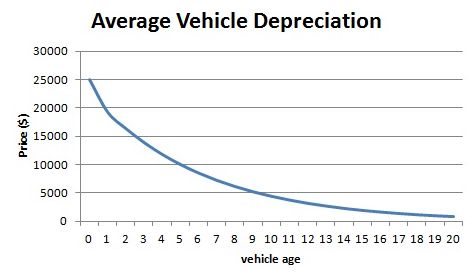I can't say any debt is a healthy thing, but foaming Ramsian evangelism isn't great either. It's all about balance...
Yes. That's the biggest problem with Ramsey its financial absolutism.
"Are you advocating a form of interest rate arbitrage? Borrow for 5% and invest at 10%? "

Not really. Here is what I am saying, in a nut shell.
Givens:
Mortgage rates are 3.25-4%
20-35% of your interest payment on a mortgage is tax deductable(depending on tax bracket)
Conservative historic growth rates for an average portfolio of stocks and bonds is 6% a year
The government allows many different forms of tax deferred savings through IRA's, 401k's, ect.
Most people are unable to buy big ticket items like cars and especially houses with cash and need some sort of a loan. Lets assume that is the case in this example.
Ramsey would then say you are better off putting down as much as possible and pay as much extra per month on your mortgage as possible. Paying towards a mortgage that is in the mid 3% range(20-30% of which is tax deductible) with after tax dollars.
The alternative is investing the extra money pre tax(starting out of the gate with 20-30% more than if you were paying down your debt), typically with some sort of company match, tax deferred growth, and compounded at ~6% a year. Those numbers are difficult to argue with, and over the period of a decade or two the divergence in actual wealth between the two is astounding.
Also, god forbid, if there is some sort of emergency you have access to the funds, in certain cases without penalty. You cant call your bank and ask them for mortgage prepayments back.
Assume that both people in this situation put down 20% to avoid PMI, although the math can make sense for putting less down even flying in the face of PMI.
I'll put some numbers to it.
Tax rate 25%
200,000 mortgage at 3.5% interest
30 year 718 per month
15 year 1143 per month
Stock/Bond portfolio growth rate is 6%
Couple A takes the 30 year mortgage and saves the extra 425 per month(566 pre tax).
Couple B takes the 15 year mortgage, and saves nothing until year 15, then saves the entire 1143 per month(1524 pre tax).
At the end of 30 years, couple A has house and $536,963
At the end of 30 years couple B has the house and $425,670
That doesn't take into account the tax deduction on the interest payment side. Also, like some people said the market doesn't necessarily return 6% per year, there are bad years. Incremental investment helps to decrease the portfolio volatility(since you have more purchase points, some lower some higher), since Couple B is saving for a shorter time period they are more at risk of a bad year or two hurting their portfolio than couple A who spreads their purchases over the course of the 30 years. Another issue is that the government places limits on how much you can invest per year in a tax advantaged account, so in some case Couple B would be prevented from investing all of the extra money in one of these accounts. Yet another thing in play is that with inflation you are continually paying your debt down with "cheaper" future dollars and over the course of 30 years this effect is not to be overlooked.
Obviously every situation is different and this oversimplifies the situation, but the above illustrates a common misconception about saving and debt.









































![Craft A Brew - Safale S-04 Dry Yeast - Fermentis - English Ale Dry Yeast - For English and American Ales and Hard Apple Ciders - Ingredients for Home Brewing - Beer Making Supplies - [1 Pack]](https://m.media-amazon.com/images/I/41fVGNh6JfL._SL500_.jpg)


















